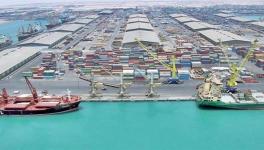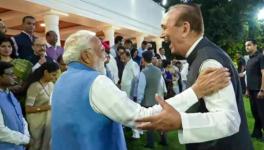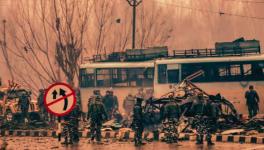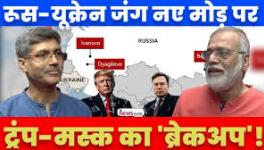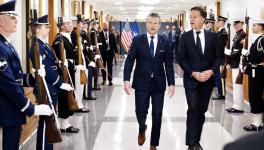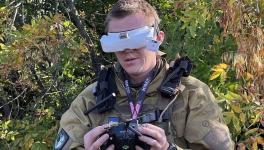Afghan Conundrum is Mutating
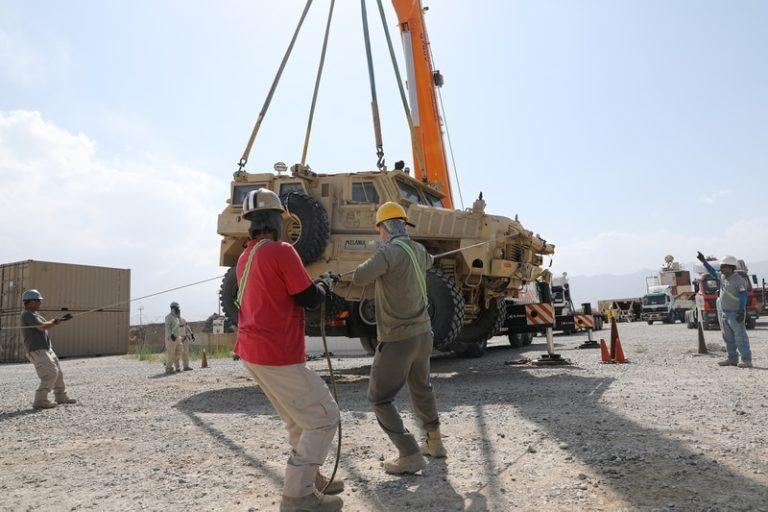
A Mine Resistant Ambush Protected vehicle being loaded on to a flatbed trailer, Bagram Air Field, Afghanistan. (File photo)
The commencement of the troop withdrawal from Afghanistan by the United States and the North Atlantic Treaty Organisation has got off to a flying start. So far there has been no hiccup. One significant landmark has been the vacation of the big American base at Kandahar, southern Afghanistan.
There is some poignancy here. A recent despatch by the Washington Post reported that “The battle against the Taliban has seesawed for months on the outskirts of Kandahar city. The second-largest city in Afghanistan, Kandahar holds strategic and symbolic value. Its province was once home to the busiest NATO base in the country, shares a long, porous border with Pakistan and was where the Taliban movement first formally mobilised.”
The fact that in a matter of some three weeks alone since the troop pullout began formally on May 1, twenty percent of the withdrawal process has been successfully completed is a matter of satisfaction for the Pentagon and the Biden Administration as well as the US’ allies in Europe.
It emerges that the latent fear in Washington and Brussels that the Taliban might taunt, harass and humiliate the retreating western forces (which includes NATO troops as well), is steadily receding. Consequently, there is a growing measure of confidence about what the future portends, which is reflected in the NATO secretary-general Jens Stoltenberg’s statement last week about an open-ended presence of the alliance in Afghanistan beyond September, even if in a modified role.
Notably, Stoltenberg was speaking during a meeting in Paris with the French President Emmanuel Macron. Germany is already on board as regards continued NATO presence in Afghanistan.
Evidently, Pakistan is compelling the Taliban to “cooperate” with the US and NATO’s revised troop withdrawal schedule, notwithstanding the threatening complaints voiced by the latter from time to time as regards the Biden administration’s retraction from the core commitment given under the Doha pact by the American side on the timeline of completion of Pentagon troop withdrawal by May 1.
Put differently, Pakistan has risen to the western expectations as regards a safe and orderly drawdown (unlike in Vietnam.) This raises in turn new possibilities. Just as Americans have a saying that there’s nothing like free lunch in a transactional relationship, it is legitimate for the Pakistani side also to explore the quid pro quo by the Biden administration. In fact, the US-Pakistan relationship historically becomes a chronicle of “free lunches” with conditions attached.
Inevitably, a dialectics came into being over time between the two inseparable partners indulging in “free lunches” and “quid pro quos” and sustaining and mutually reinforcing each other. All evidence points toward that familiar pattern returning in the problematic US-Pakistan relationship. This will cause some worry in both Kabul and New Delhi — and, perhaps, in Beijing, Moscow and Tehran as well.
Thus, the repeated visits by the British top brass to Rawalpindi in the recent months must be highlighted here. To borrow the infinitely sad words expressed by the late Princess Diana in her interview with the BBC about “three people in a relationship,” there has always been a hovering British presence in the US-Pakistan relationship — which is on call, but keeping the head just below the parapet, while all dressed up raring to go at short notice.
In particular, when it comes to the Pakistan-Afghanistan relationship, the vexing issues have been historically bequeathed to the region by Lord Curzon. Therefore, as the search for an Afghan settlement intensifies, Britain’s role becomes important.
Unsurprisingly, at the controversial meeting in Kabul on May 10 between Pakistani army chief General Qamar Javed Bajwa and Afghan President Ashraf Ghania, also present was Britain’s chief of defence staff General Nicholas Patrick Carter. (Gen. Carter and Gen. Bajwa also met separately.)
Quite obviously, London was working hard in setting up the Ghania-Bajwa encounter in Kabul for some two months since the consultations in early March that General Carter had in the Pakistani GHQ in Rawalpindi with the Pakistani COAS. Gen. Carter is well-regarded in Kabul and makes a perfect mediator. Ghania later warmly referred to the general’s presence at his May 10 meeting with Bajwa at the presidential palace: “General Carter is a mutual friend. We’ve known each other for over 10 years, since he commanded the ISAF forces in Kandahar. He’s a wonderful man. It sometimes takes special people in history to come together in a crisis.”
Indeed, the indications are that Britain is quietly working behind the scene to bring about an understanding over the disputed Durand Line (which Kabul doesn’t recognise), which is of course a British legacy and remains intractable in the absence of a new security arrangement. The Kabul elite have generally viewed Gen.Carter’s efforts in a positive spirit, given the realisation that the Durand Line question is of fundamental importance and will continue to cast shadows on Afghan-Pakistan relations unless some mutually acceptable arrangement could be worked out alongside any Afghan peace agreement.
Ideally, Pakistan would like to host a meeting between Ghania and Taliban chief Mawlawi Hibatullah Akhundzada in the near term as a confidence building measure. Conceivably, Kabul is veering round to the view that an understanding over the Durand Line question would be the price to pay for Pakistan’s good-neighbourly behaviour and scrupulous non-interference in Afghan affairs, especially its projection of power across the Khyber, henceforth. But then, this is a chicken-and-egg situation and that is why the old colonial power’s mediatory role can be useful to instil mutual confidence.
Indeed, Britain would also like to take a “hands-on” role in all this. For, there is every indication that Britain will work shoulder to shoulder with the US in any future special forces operations in Afghanistan in the period ahead beyond September 11 when the western troop withdrawal will be notionally over and behind us.
It is useful to factor in that post-Brexit Global Britain aspires to be an active participant in the US’ Indo-Pacific strategy to contain China’s rise. In anticipation of the shape of things to come, in a major reorganisation in March as part of a larger strategic shift amid great-power competition, emphasising special-operations units, British special-operations forces will henceforth see changes modelled on their US counterparts.
The 70-page MOD document titled Defence in a competitive age, presented before the House of Commons in March, views China and Russia as Britain’s most important threats, and although the British military will downsize, it expects to be more competitive against Moscow and Beijing. The British special-operations or special-operations-capable units can be divided into two tiers — the first tier comprising the Special Air Service (SAS), Special Boat Service (SBS), Special Reconnaissance Regiment (SRR), and Special Forces Support Group (SFSG), which focus on counterterrorism, hostage rescue, intelligence gathering, and direct action, while the second tier includes the Royal Marines Commandos, Parachute Regiment, and the 18 Signals Regiment. A Joint Special Forces Aviation Wing provides air transportation and support to all of the above units.
All these come under the the Strategic Command that supervises joint and national mission formations and overseas operations. Interestingly, only a fortnight after the visit of General Carter to Rawalpindi in early March to meet Gen. Bajwa, the latter had another visitor from Britain — General Sir Patrick Nicholas Yardley Monrad Sanders, Commander Strategic Command, UK.
The ISPR readout said, “During the meeting (on March 25), matters of professional and mutual interest and regional security issues were discussed. The visiting top UK military commander acknowledged and appreciated Pakistan Army’s sincere efforts in the fight against terrorism and efforts for bringing peace and stability in the region, especially the Afghan peace process.”
Without doubt, these visits by the two topmost generals of the British armed forces in such quick succession to Rawalpindi — the chief of defence staff and the commander of the strategic command — were in the context of planning the future security operations in Afghanistan following the US withdrawal of troops. The Pentagon is well aware that the British are pioneers in special operations — be it in Afghanistan or in its neighbouring regions.
Now, all this probably accounts for the intense curiosity about some secret joint activity being undertaken by the US and Pakistani military feverishly in Pakistan’s FATA region bordering Afghanistan — precisely, from Shelozan to Tari Mangal and Jazo Maidan areas — to construct military bases on the Pakistani side of the Durand Line.
Get the latest reports & analysis with people's perspective on Protests, movements & deep analytical videos, discussions of the current affairs in your Telegram app. Subscribe to NewsClick's Telegram channel & get Real-Time updates on stories, as they get published on our website.









